Semrush KeywordsThe words and phrases people enter into search engines as keywords to discover information on a given topic. 
Other names for them include "SEO keywords," "keyphrases," and "search queries." Search engine optimization (SEO) experts include keywords in webpage content to score highly on Google for a given topic. Keywords and Search Engine Marketing: Their ValueSEO and pay-per-click (PPC) marketing strategies are mainly based on keywords. Regarding SEO, having the intended phrase appear at the top of Google may draw a sizable audience of focused, high-quality readers. Furthermore, if you have a marketing budget, you may utilize PPC to rank your website above the natural search results. Advertisers bid to appear first in the search results for specific terms in Google Ads. Keywords that indicate someone is eager to buy, in general, might be ideal options for a sponsored search campaign. Take working in marketing for a car dealership as an example. In such situation, a potential buyer may look for the keyword "Toyota for sale in San Jose" online. Yes, there is a lot of advertising for that term. In contrast, a search for "best midsize sedans" might be made by a person who is a little earlier in the purchasing process. Therefore, you could be better to use it as an "SEO keyword" to focus on while optimizing a blog article. In many ways, keywords serve as the foundation of your website. Consider The Home Depot's website as an example. When you look at all of the terms they rank for, you can instantly see what their website is about and the specific items they offer. How do you discover the ideal keywords for your brand? Keyword research is the name given to this process. We'll discuss that next. How to Find SEO Keywords
The keywords you choose will determine whether or not your SEO efforts are successful. If you use highly competitive keywords, it will be challenging to rank in Google. A lot of traffic that doesn't convert might result from optimizing your website for keywords that your customers don't really use to search. Because of this, if your website is relatively fresh, you should focus your SEO efforts on long-tail keywords. Long-tail keywords receive very few searches. But they frequently have specific requirements. Specifications of a Keyword
What should one consider while performing keyword research (mainly when deciding which keywords to use)? A keyword's major characteristics are as follows:
Volume of Searches
The search volume is the number of times a phrase is looked for on Google in a given month. The average monthly searches by location are how Semrush calculates this metric. The volume of Searches statistic is vital because it allows you to estimate how much potential traffic you may get if your website appears in Google search results for the relevant keyword. For instance, 210 people in the United States searched for the term "what plants grow in the desert" per month. It also has a monthly volume of 420 searches worldwide, as you can see. There are 246.0k monthly searches for the keyword "loans" in the US and 850.8k searches worldwide. We improved the precision of our search volume algorithm in March 2022. Choosing a keyword with a high search volume might help you increase the number of people who visit your website. Ranking for well-known keywords is, however, sometimes more challenging. Therefore, newer websites should try to optimize around long-tail, typically low-volume keywords wherever possible. The reason? They need to be more competitive and easier to rank for. Competition
No matter how frequently a phrase is searched, it's essential to consider its competitiveness. The chance that there are several websites competing for the top place (both in the organic and paid results) increases with the more popular a term is. The majority of keyword tools offer an interface to evaluate keyword competitiveness. There are two evaluates in Semrush that you may use to evaluate the competitiveness on Google's first page: 1. Keyword Challenge
The work required to appear in Google's top 10 organic results for a term is shown by that metric. Based on the backlinks that point to the websites that now appear on Google's main page. 2. Competition Level
This measure reveals the difficulty and expense of ranking advertising at the top of the search results. Based on the number of advertisers that are placing bids on a specific keyword, this is determined. In general, Competitive Density helps you prioritize your advertising strategy, whereas Keyword Difficulty helps you manage your SEO campaign. The Cost (Cost-Per-Click)
Word Count
The word count is the sum of all the words in a given phrase. For instance, the word "loans" has one word, yet the phrase "The taste of the fruit is sweet" contains seven. When looking for keywords in a keyword research tool, the search volume and competitiveness of the term are frequently more essential variables than the exact amount of words. Even so, using the word count to limit your study is still beneficial. The reason for this is straightforward: the more extended the search phrase, the more precise the search results will be. Long search keywords often face less competition. Additionally, the searcher is frequently just about to make a purchase. For instance, you may filter a list of terms by word count in a keyword research tool like the Keyword Magic Tool. You may limit your search to keywords with at least five words. What would motivate you to achieve this?You may, however, discover more precise inquiries (and long-tail keywords). Take "loans"-related keywords, for instance, with five or more words. See how much more specific these keywords are than the more general term "loans"? For example, "first-time home buyer loan" typically implies that such visitors are more likely to convert once they are on your website. The intake note that these keywords have far lower keyword difficulty than "loans." Another advantage of focusing on longer-term goals! The Intent of Keyword Search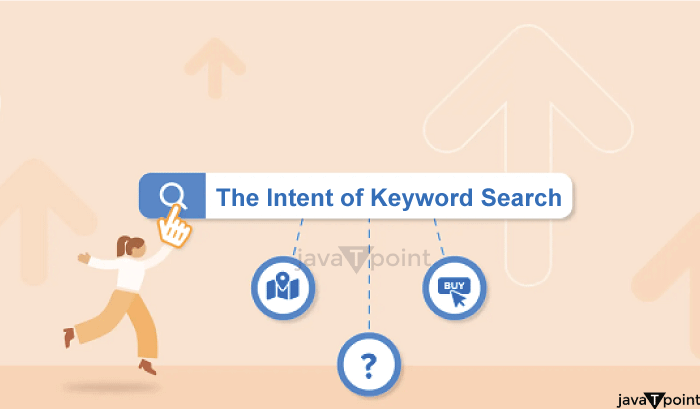
The user's search intent reveals where they are in their journey. A few questions help assess intent:
These four questions may be used to classify search intent into four broad categories:
Any keyword in our database may have its intent easily determined thanks to Semrush. Simply check for the corresponding column on any keyword report. 1) Transactional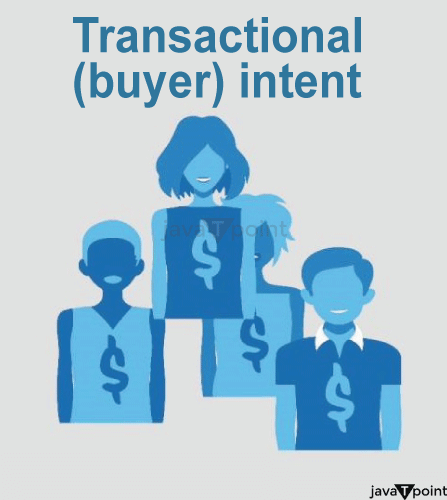
Transactional searches show a clear desire to do business online. Here are a few illustrations of transactional queries:
Transitional inquiries may contain the terms "buy," "Subscribe," or "for sale." These keywords tend to be more precise as well. They may even use specific words to describe your item or service, such as "neon blue unisex watch." 2) Commercial
Users that have commercial intent typically do their homework before purchasing goods, services, or brands. They aren't yet prepared to purchase. But they're probably going to buy something shortly. Examples:
It's still a wonderful moment to get in front of customers who search using commercial intent keywords even if they might not have immediate plans to make a purchase. Your business will be at the forefront of their minds when they are ready to purchase. 3) Informational
Informational searches seek information without a clear desire to interact in any way that is relevant to the search, such as instructions, facts, or knowledge. Examples:
Informational requests often suggest that the user is trying to find an answer to a question. Although targeting these keywords with SEO might make sense, they are unlikely to provide you with a significant return on investment from advertising. One example of a keyword that generates a lot of organic traffic for us is our compilation of the world's top websites. Our research shows that 101.1k Google users visit this particular page each month. But this term has a strong informative intent. Very few of the users who find us using that term will immediately sign up for our product. However, that traffic is still worthwhile. We are exposing our brand to tech-savvy people. We have a good amount of traffic that subscribes to our newsletter and follows us on social media. This is advantageous because when they are ready to purchase marketing software, they will remember us as an option. 4) Navigational
Navigational searches show that the user wants to get to a certain website or piece of content. Examples:
If you happen to be the brand that someone is looking for, these searches are ideal to rank for. Otherwise, it typically makes little sense to target navigational keywords. Types of Keywords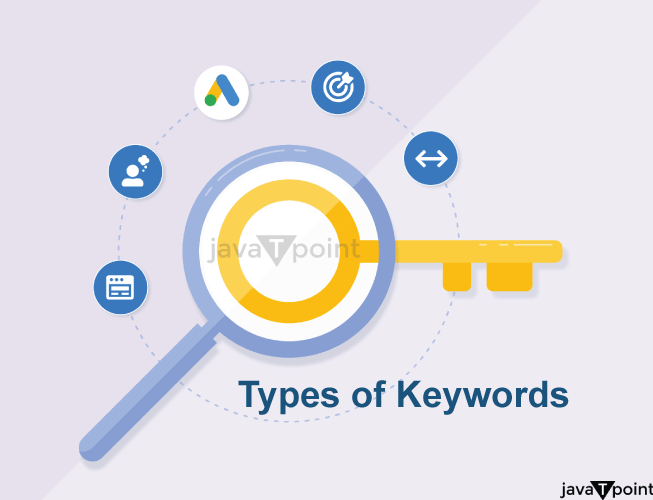
As you just saw, keywords may be used for a variety of search purposes. But there are a few other keyword varieties that are important to know. These keywords consist of:
1) Branded KeywordsBranded keywords are those that contain a particular brand name. Branded keywords include, for instance: "For sale: Adidas tracksuit" The phrase "Semrush pricing" A "Chewy Discount Code" 2) Geo-specific Keywords
Geographical terms like "restaurants in Chicago" or "dentist in Philadelphia" are examples of geo-targeted keywords. These offer fantastic customers for local businesses that serve a specific geographic region. 3) Negative Keywords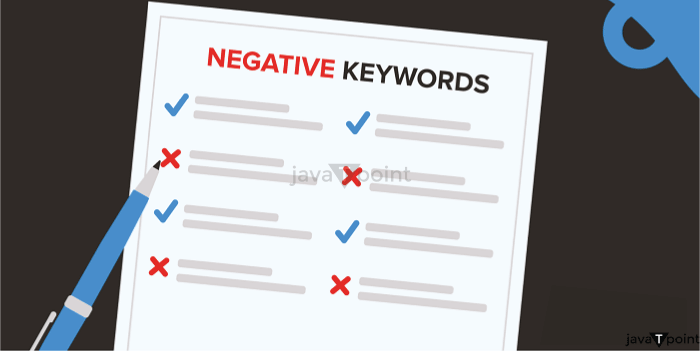
In your Google Ads campaign, you don't want to employ any negative keywords. For instance, if you include the term "free" as a negative keyword, Google advertising will be instructed not to display your advertising to any users who include the word "free" in their search. Why is it necessary to mention negative keywords when selecting keywords to bid on in Google Ads?In Google Ads, you may define terms with a "broad match." This implies that Google may display your advertisement for both your specific term and its variants. For instance, you could wish to place a bid on the term "best toasters." Depending on how your wide match settings are configured, Google may show your advertisements when users search for terms like "best toasters under $20" and "best toasters for bagels." Negative keywords come into play here. They enable Google to show your advertisement for relevant searches. Although not for searches that you deliberately choose not to make a bid on. Comparison of Keywords for PPC and SEO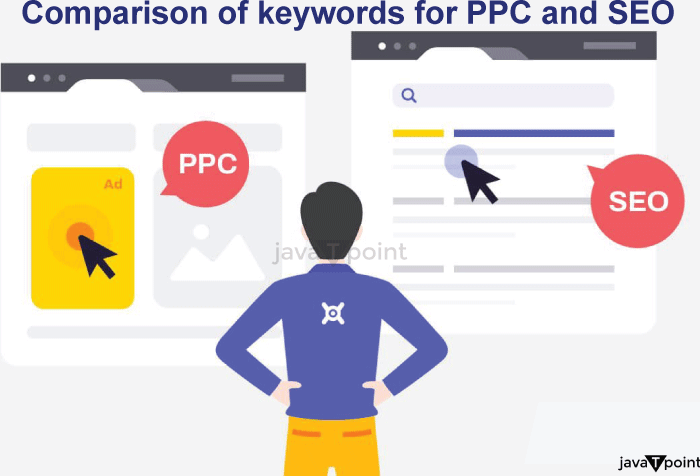
Ideal keywords for SEO
Ideal Keywords for PPC
Tips for Using Keywords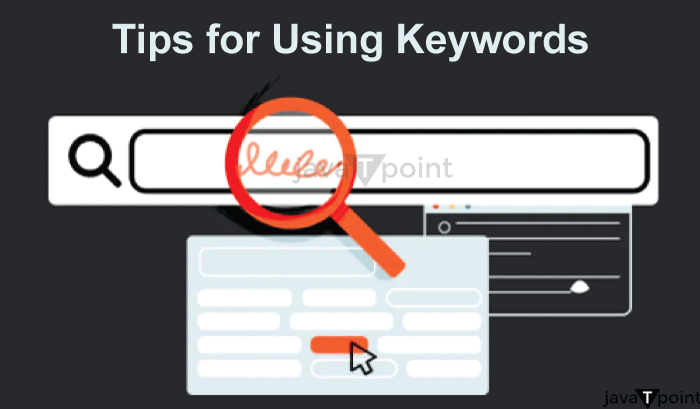
When you focus your efforts on specific keywords for content optimization, keep the following good practices in mind:
1) Stay away from Keyword Stuffing
2) Natural Keyword Use
The first step is to stay away from keyword stuffing. What does it mean, though, to include keywords naturally? Here's an illustration
3) Specify Long-tail Keywords with Low Competition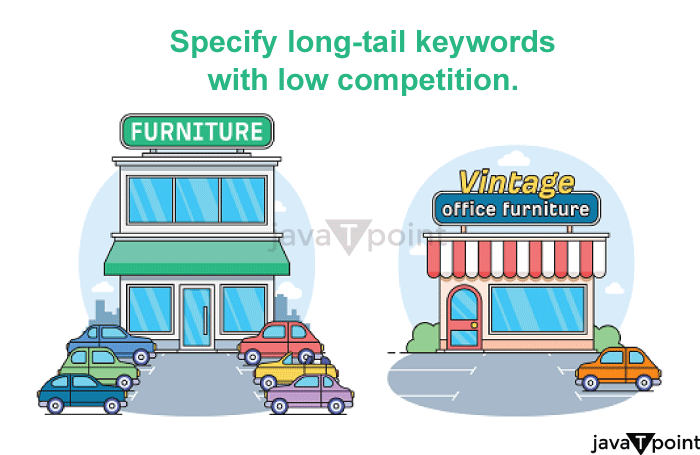
In this article, we've covered long-tail keywords in great detail. They are often the greatest keywords to target for those who are new to digital marketing, and for good reason. 4) Find out where to Put Your Keywords
A crucial aspect of having your website rank well on Google is using keywords in your text, sometimes referred to as "on-page SEO." This is due to the fact that Google can better understand the content of your website when you strategically include keywords. In general, using keywords in your content will improve its performance in searches for:
ConclusionYou probably didn't just discover what keywords are, we hope. You have gained valuable insight into the importance of utilizing keywords in your online marketing strategies. It's time to apply all the knowledge you have acquired. Therefore, go ahead and research keywords for your company. As well as beginning to include those keywords in your SEO and Google Ads efforts.
Next TopicSemrush Discount
|
 For Videos Join Our Youtube Channel: Join Now
For Videos Join Our Youtube Channel: Join Now
Feedback
- Send your Feedback to [email protected]
Help Others, Please Share










